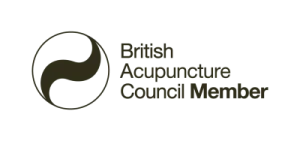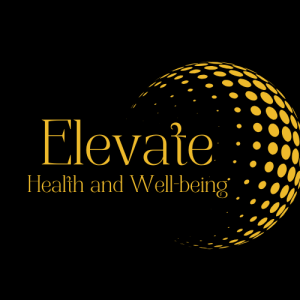Acupuncture, a cornerstone of Traditional East Asian & Chinese Medicine (TEACM), has been practiced for millennia. Its thin needles, strategically inserted at specific points on the body, have been used to treat a wide range of ailments, from chronic pain to anxiety. But how does this ancient practice translate into the world of modern science? This blog delves into the evolving understanding of acupuncture's mechanisms, exploring both the traditional TEACM perspective and the ongoing scientific investigations.
Unveiling the Traditional View: Qi, Meridians, and Balance
TEACM philosophy centres on the concept of Qi (pronounced "chee"), a vital energy force believed to flow throughout the body through pathways called meridians. According to this theory, illness arises when Qi becomes blocked or imbalanced. Acupuncture is seen to stimulate these points, influencing the flow of Qi and restoring balance within the body, thereby promoting healing.
Modern Science: Demystifying the Mechanisms
While the concept of Qi may not translate directly into Western medicine, scientific research is uncovering the complex biological effects of acupuncture. Here's what we know so far:
- The Nervous System Connection: Acupuncture needles stimulate nerves located at acupoints. This triggers the release of various neurotransmitters, including endorphins, which have pain-relieving and mood-boosting effects. Studies suggest acupuncture may also modulate pain signals traveling through the spinal cord and brain.
- Neuromodulation and Brain Function: Research indicates acupuncture can influence brain activity. Functional Magnetic Resonance Imaging (fMRI) studies have shown acupuncture activating regions of the brain associated with pain processing, mood regulation, and the immune system. (link to a summary of a study available on youtube https://www.youtube.com/watch?v=g9vLe4lFWVk)
- Blood Flow and Tissue Healing: Acupuncture needles can increase blood flow to the targeted area, potentially promoting tissue repair and reducing inflammation. This may be particularly beneficial for conditions like muscle tension and pain.
- The Autonomic Nervous System: Acupuncture may influence the autonomic nervous system, which controls involuntary functions like heart rate and digestion. Stimulating specific points may help regulate this system, promoting relaxation and reducing stress.
Exploring Different Acupuncture Techniques
The world of acupuncture isn't one-size-fits-all. Here are some variations commonly used:
- Traditional Acupuncture: This involves inserting hair-thin needles at specific acupoints based on TCM principles.
- Dry Needling: A western medical technique, dry needling uses acupuncture needles to target trigger points in muscles, aiming to relieve pain and improve muscle function.
- Electroacupuncture: This variation incorporates a low-voltage electrical current passed through the needles, potentially enhancing the therapeutic effects.
- Acupressure: This non-invasive technique applies pressure to acupoints with the fingers or specific tools.
The Evidence for Acupuncture's Effectiveness
Clinical research has been exploring the effectiveness of acupuncture for various conditions. Here's a glimpse into some well-supported applications:
- Chronic Pain: Studies have shown acupuncture can be beneficial for managing chronic pain conditions like back pain, neck pain, and osteoarthritis.
- Headaches and Migraines: Acupuncture has demonstrated potential in reducing the frequency and severity of headaches, including migraines.
- Nausea and Vomiting: Acupuncture has been shown effective in relieving nausea and vomiting associated with pregnancy, chemotherapy, and surgery.
- Anxiety and Depression: Research suggests acupuncture may offer benefits in managing anxiety and depression symptoms.
- Allergies: Some studies indicate acupuncture can help alleviate allergy symptoms, such as those associated with seasonal allergies.
- Womens health: acupuncture has shown to regulate our hormones and thus reduce problems associated with menstruation from pain to PCOS to PMDD, as well as helping alleviate the symptoms of perimenopause, flushing, anxiety, insomnia, brain fog.
Important Considerations:
While the research on acupuncture is promising, it's crucial to remember that:
- Individual Results May Vary: The effectiveness of acupuncture can differ depending on the specific condition, treatment plan, and individual response.
- More Research is Needed: While there's a growing body of evidence, further research is needed to fully understand the mechanisms of action and long-term effects of acupuncture. (which if you know almost anything about research involving humans is always part of the conclusion!)
- Acupuncture Should Complement Conventional Care: Acupuncture is best integrated with modern medicine including pharmaceutials, counselling and physiotherapy, not used as a replacement.
Is Acupuncture Right for You?
If you're curious about acupuncture, it's essential to consult a licensed and qualified acupuncturist. They can discuss your specific health concerns, assess your suitability for acupuncture, and develop a personalised treatment plan, you can book a call to discuss your case with Paula for free (click here), and know there is absolutely NO obligation to have treatment with her.
In the UK we are licensed by the local council – and should have their license easily on display for you to see in their waiting area.
Finding a Qualified Acupuncturist:

- Look for practitioners certified by a reputable organisation. In the UK I would recommend British Acupuncture Council practitioners for full training or British Medical Acupuncture Society for those trained more in ‘dry needling’. (I am a full member of the British Acupuncture Council my number is 958495)
- Inquire about their training and experience – do not be afraid to ask, anyone reputable and trustworthy will be happy to share.
- Discuss your health goals and any concerns you may have. I offer free consultations to discuss your individual case before you need to commit to anything (click here to book)
Conclusion: Acupuncture - A Bridge Between Ancient Wisdom and Modern Science
Acupuncture offers a unique approach to healthcare, drawing on centuries-old wisdom while aligning with modern scientific understanding. As research continues to shed light on its mechanisms, acupuncture's role in promoting health and well-being continues to evolve.
References
Han, JS., Terrier, L., & Ahn, YH. (2009). The role of the spinal cord in the analgesic effects of acupuncture. Pain, 144(1-2), 85-98. https://www.ncbi.nlm.nih.gov/pmc/articles/PMC9434926/
Pariante, CM., Hicks, A., Garner, P., Singh-Bains, SK., Stein, DJ., & Anderson, IM. (2004). Activation of the insular cortex by acupuncture in healthy volunteers: the role of insula in emotional awareness. Neuroimage, 21(1), 254-266. https://www.nature.com/articles/srep12455
Further Exploration:
The references listed above provide a starting point for exploring the scientific research on acupuncture mechanisms. Several resources offer comprehensive reviews and ongoing research updates on acupuncture:
- The National Center for Complementary and Integrative Health (NCCIH): https://www.nccih.nih.gov/health/acupuncture-what-you-need-to-know
- The Cochrane Collaboration: https://www.ncbi.nlm.nih.gov/pmc/articles/PMC7050203/
- Paula’s favourite resource is https://www.evidencebasedacupuncture.org/
These websites offer in-depth information on acupuncture research and its effectiveness for various health conditions.
